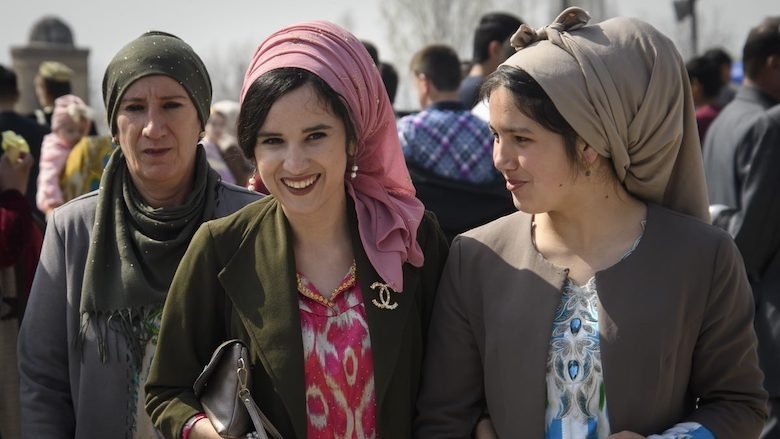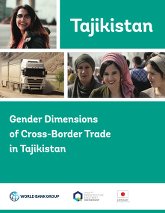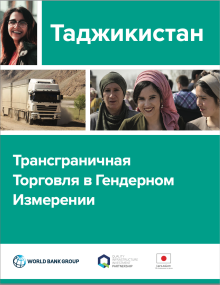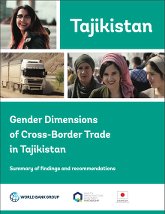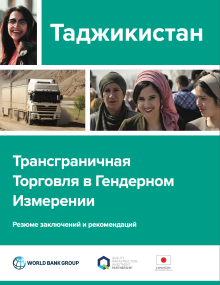Research has shown that the expansion of international trade is essential for poverty reduction, and it provides better job opportunities and increased returns particularly for women. Oftentimes, women face more or different challenges than men that prevent them from fully participating in trade.
This survey aims to quantify the exact nature of challenges women cross-border traders face at the firm-level in Tajikistan. The World Bank Group undertook a survey of 401 cross-border trade firms and 31 customs brokers between March and November 2022.
The research largely focused on areas related to the World Trade Organization Trade Facilitation Agreement, while also researching the impact of the COVID-19 pandemic, conflicts in the region, transport issues, and safety and security at the borders.
This report presents the findings and recommendations of the study undertaken in Tajikistan.
|
|
Download the Full Report | Download the Full Report |
|
|
Download the Summary | Download the Summary |
